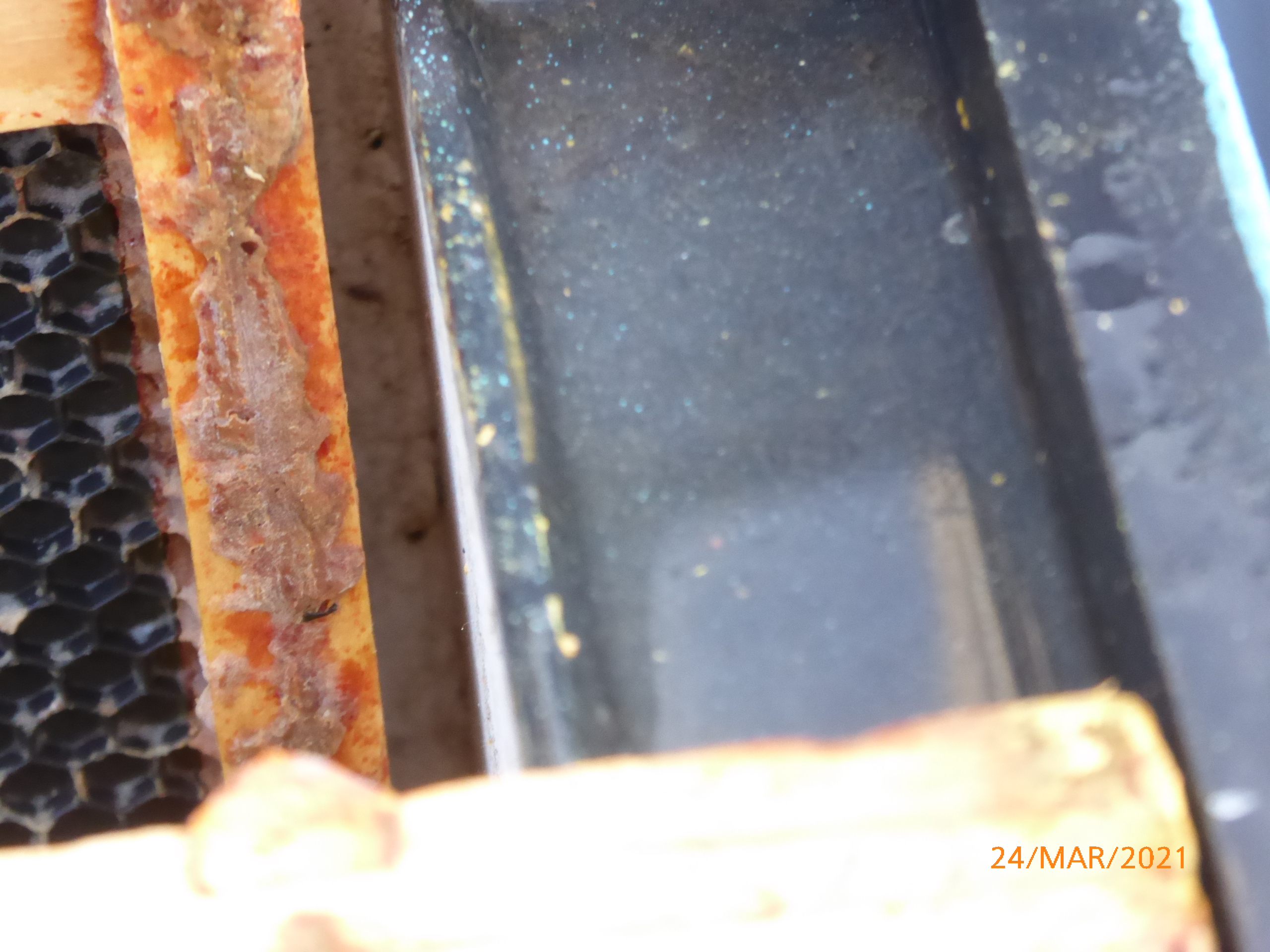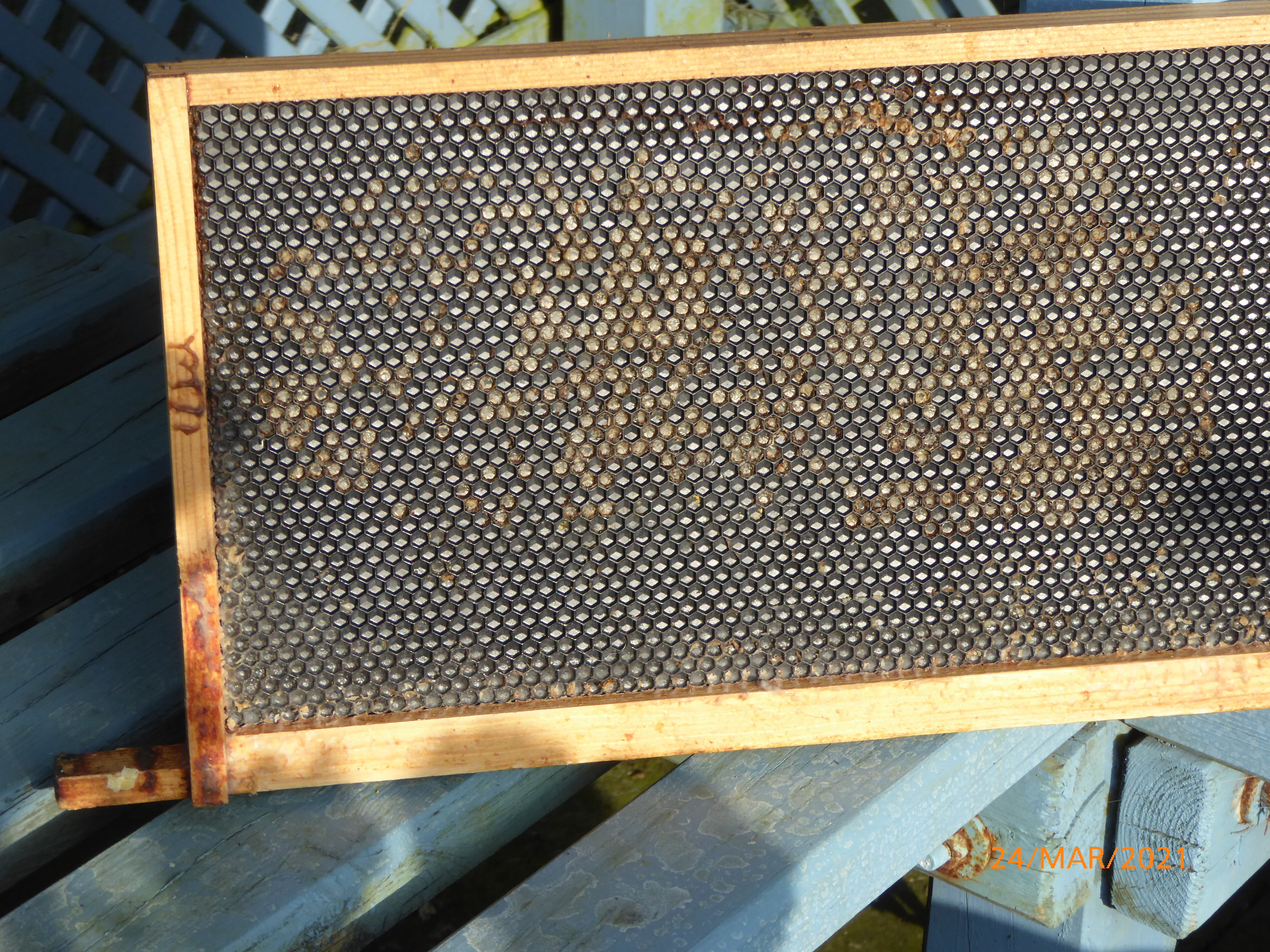As Spring starts to show we are busy painting the wooden hive, raking the slate in the apiary, and preparing to catch a swarm. Asian hornet traps will be in position soon.
Because we had intended splitting our strong colony, in the wooden hive, a new Poly hive was brought. This hive, like our other poly hive, is sold by Abelo they are a new design more compact, and slim design. However, unlike the older style hives, they have a problem with collecting water in the internal side channels the frames rest on.
on.
The solution is to cut a small piece out of the ends of the channel to allow the water to drain away. This solution is not ideal as the water will run down the inside of the brood box. We have heard that the bees can make use of this water but have no specific proof or photos to substantiate the claim.
Subsequently, we are looking at an idea that requires the outside joint between the boxes to have a rigid perspex skirt around it. The problem is caused by no lip moulding as part of the overall box design; allowing the boxes to interlock.
Because of the problems we found last year we have decided to have a hive with two brood boxes and remove the need for a queen excluder. Last year we found a large number of drones had died attempting to pass through the queen excluder. Also with two brood boxes the queen will have more room to lay and it should reduce overcrowding; a prelude to swarming.
Moreover, we will continue to use plastic foundations in one hive and wax in the other. Wax moth damage on the plastic foundation was slight and they are unable to move from one side of the frame to the other.
We have started to look out for any swarms in the local area or on a local community hub. As we have no other bees there is no need to isolate them for at least 3 weeks. Many beekeepers advocate not feeding the bees as they will have honey with them and it is considered desirable to ensure that they use the honey they have to start to draw out foundation. These precautions are to control any disease they have spreading to other hives in the apiary.
The winter was a challenge for many colonies of bees. We have heard of experienced beekeepers losing colonies this year. The very wet October and November may not have helped the survival of the overwintering bees.
There have been some swarms this year but I would hazrd not as many as 2020. Many beekeepers have reported that their bees are slow to build this year, despite a very sunny period in April. May has been bye and large wet and June has followed suite.
